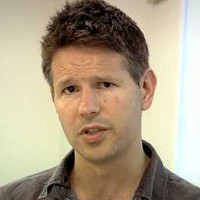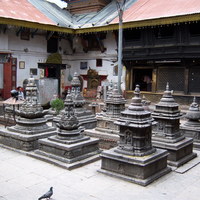
akshay khanna
Related Authors
Don Ross
University College Cork
Gustavo Fischman
Arizona State University
Cirus Rinaldi
Università degli Studi di Palermo
Oliver P Richmond
The University of Manchester
Armando Marques-Guedes
UNL - New University of Lisbon
Giulia Sissa
Ucla
Noe Cornago
University of the Basque Country, Euskal Herriko Unibertsitatea
Nader Ale Ebrahim نادر آل ابراهیم
Alzahra University
George Lawson
The Australian National University
David Gellner
University of Oxford










Uploads
Papers by akshay khanna
This publication is constituted of 5 pieces in conversation with each other. The first piece, the main paper, brings together theoretical approaches from philosophy, anthropology and activism with four case studies – the Egyptian uprising as one part of the ‘Arab Spring’, the protests in Greece, the hunger-strike that sparked off an anti-corruption movement in India, and the more diffuse context of the role of Information and Communication Technologies such as mobile phones and internet platforms in citizen action. The paper examines new modalities of political action being generated in these contexts and argues that current approaches to citizen action, (approaches concerned either with the relationship between citizens and state apparatus, or identity related collective action) characterised by the assumptions of that politics relates to ‘interests’, or ‘representation’, fail to appreciate the potential of these emergent modalities. The paper also asks whether the framework of ‘citizenship’ is adequate for understanding these modalities, whether ‘conscious engagement’ or explicit ideological interpretation of action is necessary to constitute it as political, how we might understand the role of ICTs in these emergences, the role of the ‘bare life’ in generating unruly political action and the usefulness of the notion of ‘Event’ in understanding the changing face of citizen action. The main paper concludes with a discussion on the cynical deployment of discourse in politics, and argues that several of the recent events might be seen as generating the possibilities of a politics that is not cynical.
Main paper is followed by three essays written by academics, activists and development practitioners in response to the main paper. Sonia Correa, Shahrukh Alam and Ute Seela each engage the paper from different locations, contesting claims and examining implications of the arguments therein, providing insights from their own locations and perspectives. The final piece of the publication is a response to these essays, highlighting the directions of thought and practice that these engagements open up, clarifying particular points and making some final provocations.
This publication is constituted of 5 pieces in conversation with each other. The first piece, the main paper, brings together theoretical approaches from philosophy, anthropology and activism with four case studies – the Egyptian uprising as one part of the ‘Arab Spring’, the protests in Greece, the hunger-strike that sparked off an anti-corruption movement in India, and the more diffuse context of the role of Information and Communication Technologies such as mobile phones and internet platforms in citizen action. The paper examines new modalities of political action being generated in these contexts and argues that current approaches to citizen action, (approaches concerned either with the relationship between citizens and state apparatus, or identity related collective action) characterised by the assumptions of that politics relates to ‘interests’, or ‘representation’, fail to appreciate the potential of these emergent modalities. The paper also asks whether the framework of ‘citizenship’ is adequate for understanding these modalities, whether ‘conscious engagement’ or explicit ideological interpretation of action is necessary to constitute it as political, how we might understand the role of ICTs in these emergences, the role of the ‘bare life’ in generating unruly political action and the usefulness of the notion of ‘Event’ in understanding the changing face of citizen action. The main paper concludes with a discussion on the cynical deployment of discourse in politics, and argues that several of the recent events might be seen as generating the possibilities of a politics that is not cynical.
Main paper is followed by three essays written by academics, activists and development practitioners in response to the main paper. Sonia Correa, Shahrukh Alam and Ute Seela each engage the paper from different locations, contesting claims and examining implications of the arguments therein, providing insights from their own locations and perspectives. The final piece of the publication is a response to these essays, highlighting the directions of thought and practice that these engagements open up, clarifying particular points and making some final provocations.